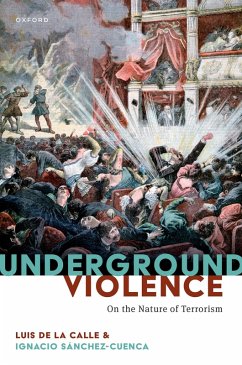Dieser Download kann aus rechtlichen Gründen nur mit Rechnungsadresse in A, B, BG, CY, CZ, D, DK, EW, E, FIN, F, GR, HR, H, IRL, I, LT, L, LR, M, NL, PL, P, R, S, SLO, SK ausgeliefert werden.
What makes terrorism a unique form of political violence is its underground nature. According to the conceptualization of the phenomenon offered in this book, terrorism is the kind of violence carried out when the perpetrators lack territorial control. There is a strong link between terrorism and secret, clandestine operations, making terrorists attacks ephemeral, as opposed to battles and assaults. The book offers a comprehensive conceptual analysis of terrorism, comparing it with competing theories and views on the subject, such as terrorism is killing civilians, or terrorism is a form of violence that relies on the distinction between direct and indirect targets. The conceptualization advanced here makes sense of some peculiar traits of terrorism, from international attacks (in which the underground constraint is most obvious), to lone-actor ones (in which a single individual commits a deed). It also delimits the possibility of state terrorism as covert operations by security forces, normally abroad. Approaching terrorism in terms of the underground not only makes sense of how we talk about terrorism, but it also generates testable consequences. Through a combination of statistical and comparative analyses, it is shown that the use of terrorism is driven by the degree of asymmetry between the contending parties.

